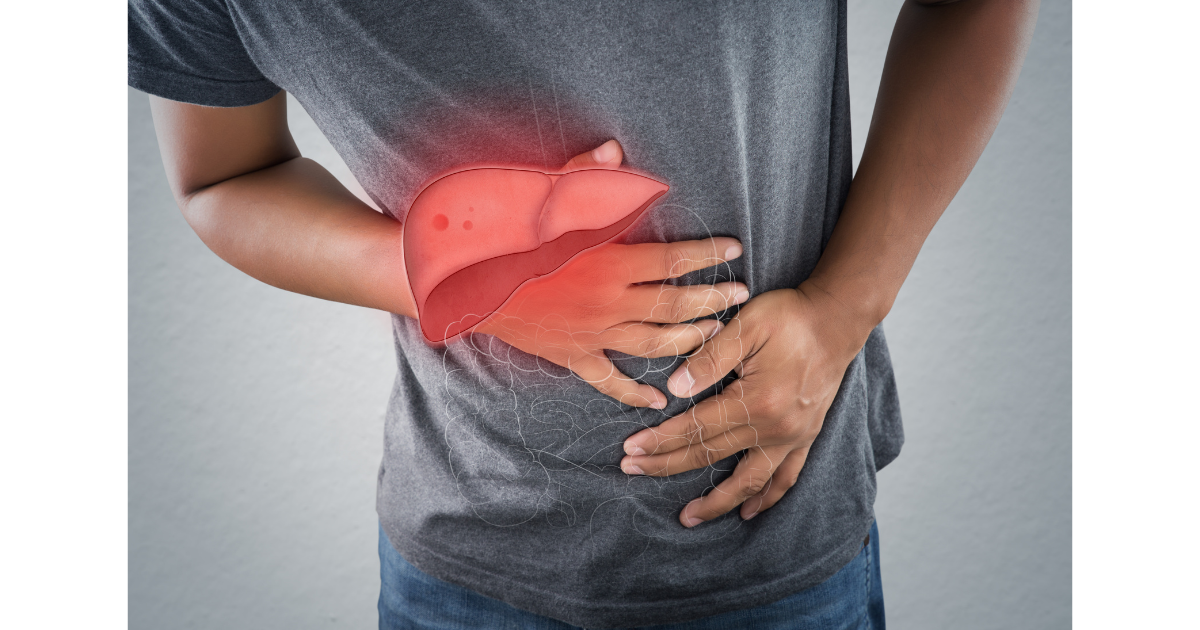In the United States, 29.5 million people aged 12 and older have alcohol use disorder.¹ An alcohol addiction can affect your mental and physical health, leading to serious medical complications that include liver damage. If you have an alcohol use disorder and are in recovery, you may not know whether your liver is healing after stopping alcohol use.
Learn more about the kind of liver disease that can come from alcohol misuse and how to tell if you are healing.
Liver Disease from Alcohol Consumption and Why to Consider Stopping Alcohol Use
Alcoholic liver disease is a common problem for people with alcohol use disorder. The liver is the part of your body that breaks down alcohol, so if you drink more than the organ can process, damage can occur.
Although many people who have alcohol use disorders develop liver disease, not everyone does.
There are three main types of alcoholic liver disease²:
- Fatty liver
- Alcoholic hepatitis
- Alcoholic cirrhosis
Some people with alcohol use disorder progress through all three of these liver diseases, with symptoms becoming more severe over time.
Fatty Liver
Fatty liver is the fat buildup in your liver cells, leading to an enlarged liver. This is the most common type of liver disease that comes from excessive alcohol consumption.
Fatty liver disease often has no symptoms, but for some people, it can cause fatigue, weakness, weight loss, and discomfort on the right side of your abdomen.
Alcoholic Hepatitis
Alcoholic hepatitis is an inflammation of the liver that causes death in liver cells and can lead to permanent scarring.
Some common symptoms of alcoholic hepatitis are:
- Fever
- Pain over the liver
- Jaundice
- Appetite loss
- Vomiting
- Nausea
- Weakness
Alcoholic hepatitis can be treated, but the outcome depends on the degree of damage and how long you have had symptoms of an alcohol use disorder.
Alcoholic Cirrhosis
Alcoholic cirrhosis refers to the death of liver tissue, leaving scar tissue in its place. Symptoms include:
- Enlarged spleen
- Kidney failure
- Confusion
- Liver cancer
- Intestinal bleeding
- Poor nutrition
- Portal hypertension
- Fluid buildup in the stomach
At this stage, liver damage is irreversible. For most people, the only option is a transplant.
Getting Help for Liver Disease by Stopping Alcohol Use
Addressing liver disease resulting from an alcohol use disorder requires stopping alcohol use. The best way to do this is to enroll in a rehabilitation program.
Alcohol addiction treatment often begins with medical detox to help you remove alcohol from your system without having to go through serious withdrawal symptoms. The program should then delve into the root causes of the addiction so that you can start making lasting changes. You can learn valuable coping skills in treatment that help you avoid relapse once you are sober.
The next part of treating liver disease is adding nutritional support. The damage to your liver can cause malnutrition, so you will need to work with a nutrition expert to put together the kind of meals you and your liver need to heal.
Damage to the liver can also make it unable to store glycogen, a carbohydrate that provides short-term energy.³ Your body uses muscle tissue to supply energy between meals, leading to weakness and wasting. To resolve this, you must include more protein in your diet as you heal.
How the Liver Heals Itself by Stopping Alcohol Use
Stopping alcohol use allows your liver to start healing, but how does it do so?
Just like your skin, your liver is self-healing. Each time it processes alcohol, some liver cells die, but the organ can create new ones. If you have an alcohol use disorder, however, you are not giving the liver enough time to do this, creating scarring.
The damage is usually reversible if you have liver disease in its early stages (fatty liver). Chronic alcohol misuse can cause damage that takes years to heal, but you must stop drinking and make nutritional changes.
Signs Your Liver Is Healing from Stopping Alcohol Use
As you continue your sobriety, you may start noticing the signs that let you know your liver has begun healing.
Increased Energy from Stopping Alcohol Use
When your liver is not working at its best, it can affect your metabolism. You can feel fatigued and sluggish. As your liver begins healing, you can start feeling more energetic.
Stabilized Weight by Stopping Alcohol Use
Since your liver affects your metabolism, a damaged one can make your weight fluctuate wildly. People who have liver disease can experience weight gain while at the same time having serious nutritional deficiencies. When your liver begins healing, you can start seeing your weight stabilize in relation to your diet and exercise regimen.
Pain Reduction
A damaged liver can cause pain that ranges from mild to severe. You may notice that you have to use fewer painkillers when your liver starts healing.
Normal Skin and Eye Colors
One of the most common signs of liver disease is having a yellow tinge to the white of your eyes and even to your skin. This yellowing is because of an excess of bilirubin, a compound in red blood cells that helps transport oxygen.⁴
Your liver breaks down red blood cells when they have finished their cycle, so when a damaged liver can no longer do this, bilirubin builds up in your blood.
If you see the whites of your eyes returning to white and your skin starting to lose that yellowish tint, it is a good sign that your liver is healing.
Improved Blood Work from Stopping Alcohol Use
A liver function test can check your liver’s overall health, measuring enzymes, proteins, and more. A healing liver will have results that fall within the normal range.
Stabilized Stool from Stopping Alcohol Use
Liver disease can affect how your stools look. Bile causes your stools to be brown, and the liver produces bile. If the liver is not functioning as it should and is not producing enough bile, you can have pale or clay-colored stools.
Your body also needs bile to process fatty foods. If your liver is not making enough bile, your body can’t digest fatty food correctly, leading to stools that float.
The kind of stools you want to see are firm brown ones.
Clearer Thinking from Stopping Alcohol Use
Your liver removes toxins from your body. If it is not functioning correctly, those toxins remain. Toxins can impair brain function, potentially leading to hepatic encephalopathy, a liver disease that affects brain function.⁵ It can cause foggy thinking.
People with more serious forms of liver disease can develop this condition. If you start feeling less foggy and realize your thinking is clearer, it can point to a liver that has begun to remove toxins again.
Stopping Alcohol Use
If you struggle with an alcohol use disorder, there is help available. At Wolf Creek Recovery, we offer alcohol rehab in AZ to guide you back to sobriety. With experts ready to help you get to the underlying cause of the addiction, you can start making the kind of positive changes that can offer you a new chance at life.
Contact Wolf Creek Recovery today to speak with our experts.
Sources:
[1] https://www.niaaa.nih.gov/alcohols-effects-health/alcohol-topics/alcohol-facts-and-statistics/alcohol-use-disorder-aud-united-states-age-groups-and-demographic-characteristics [2] https://www.ncbi.nlm.nih.gov/books/NBK546632/ [3] https://www.ncbi.nlm.nih.gov/pmc/articles/PMC4802397/ [4] https://www.ncbi.nlm.nih.gov/books/NBK470290/ [5] https://www.ncbi.nlm.nih.gov/pmc/articles/PMC5421503/
Finding purpose in pain is what Jonathon does best. He is a strong advocate for those suffering from substance use disorders. As a person in recovery, Jonathon knows how important it is to receive empathy and compassion. He recognizes that each person comes from a different set of circumstances and deserves to be valued and respected.
With a fresh perspective and compassionate attitude, Jonathon works closely with clients to help them let go of the past and know when to take necessary risks. The recovery process is ongoing, which means people need to move forward while applying the skills learned in treatment. Jonathon is a great motivator when it comes time for this!
Jonathon also places emphasis on the family unit and how it can make or break the recovery experience. Individuals with active, supportive families have far better outcomes. Jonathon realizes that it’s impossible to move mountains overnight, but with the right support team and positive attitude, anything is possible.












